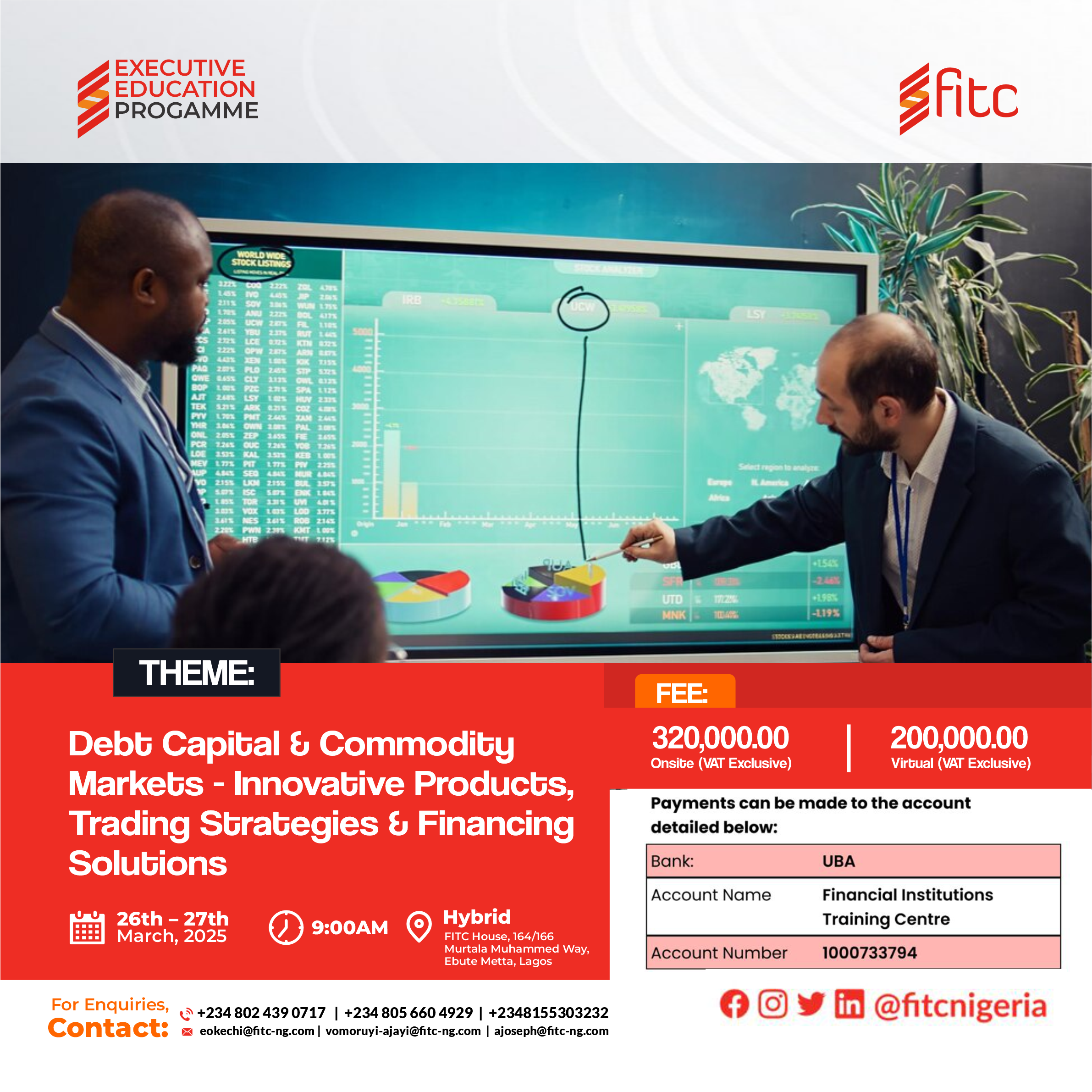
Debt Capital & Commodity Markets – Innovative Products, Trading Strategies & Financing Solutions

Background.
Debt capital and commodity markets serve as critical drivers of economic growth, offering innovative solutions for financing infrastructure, business expansion, and trade. Globally, these markets have undergone significant evolution, with the integration of advanced financial instruments, technology-driven trading platforms, and diversified investment options. As nations strive to bridge funding gaps and manage economic volatilities, the strategic alignment of debt capital instruments and commodity market solutions remains a cornerstone for fostering sustainable development. Understanding these markets requires a nuanced appreciation of their interconnectedness, trends, and implications for economic resilience.
The exploration of innovative financial products and trading strategies has become indispensable for market participants, including institutional investors, financial managers, and policymakers. Leveraging these strategies offers an opportunity to optimize funding sources, manage risks effectively, and access global capital pools. For leaders in finance, developing expertise in these areas translates to the ability to design and execute financing solutions that deliver long-term value for organizations and economies alike. Moreover, the dynamic nature of commodity markets necessitates a robust understanding of pricing mechanisms, derivatives, and sustainability considerations to align with evolving market demands and regulatory expectations.
Therefore, it is against this background that FITC is organizing a 2-day programme titled, Debt Capital & Commodity Markets – Innovative Products, Trading Strategies & Financing Solutions. It is specially designed to equip participants with advanced insights, tools, and strategies for navigating the complexities of debt and commodity markets, fostering innovative financing solutions, and driving economic value creation. This programme aims to empower financial leaders with the expertise to lead in dynamic markets, mitigate risks, and maximize opportunities for organizational and economic growth.
Target Audience
- This programme is designed for C-suite executives, chief financial officers, senior investment managers, treasury professionals, portfolio managers, institutional investors, commodity traders, policy advisors, and regulators involved in the management, regulation, or optimization of debt capital and commodity markets.
Learning Outcomes
At the end of this course, participants will be able to:
- Develop a comprehensive understanding of the structures and dynamics of debt capital and commodity markets, enabling informed decision-making.
- Gain insights into innovative financial instruments and strategies that optimise funding, manage risk, and enhance market participation.
- Build expertise in leveraging technology and advanced analytics to execute efficient trading and financing solutions.
- Understand the role of sustainability and regulatory compliance in driving long-term success in debt and commodity markets.
Learning Objectives
- Analyse the integration of debt capital and commodity markets and their implications for global and regional economies.
- Evaluate innovative products such as green bonds, structured derivatives, and commodity-linked financing instruments.
- Examine trading strategies, including arbitrage, hedging, and speculation, within the context of evolving market dynamics.
- Explore case studies and frameworks that highlight successful market participation and sustainable financing practices.
Programme Focus Areas:
- Debt Capital Markets: Structures, Opportunities, and Innovations
- Overview of debt capital market structures and their alignment with global economic trends.
- Exploration of innovative debt instruments, including green bonds and sustainability-linked loans.
- Examination of liquidity, market access, and diversification strategies for issuers and investors.
- Insights into credit rating mechanisms and their impact on debt pricing and market performance.
- Discussion on the role of emerging markets in the global debt capital ecosystem..
- Innovative Financial Products in Commodity Markets
- Analysis of commodity-backed financing solutions, such as asset-backed securities and structured finance.
- Insights into commodity-linked derivatives, including futures, options, and swaps.
- Examination of pricing mechanisms and their relationship with macroeconomic factors.
- Discussion of new market entrants, including digital commodity platforms and blockchain applications.
- Exploration of sustainable commodity investments and their role in aligning market practices with ESG goals.
- Advanced Trading Strategies for Debt and Commodity Markets
- Analysis of arbitrage techniques and their potential for capitalizing on market inefficiencies.
- Exploration of hedging frameworks for mitigating risks associated with interest rates, currencies, and commodity prices.
- Examination of speculative trading and its implications for liquidity and market trends.
- Insights into algorithmic trading and how technology transforms market participation and efficiency.
- Strategies for multi-asset trading to optimize portfolio diversification and returns.
- Technology and Analytics in Market Dynamics
- Examination of digital platforms and their role in enabling seamless debt and commodity trading.
- Insights into the use of AI, machine learning, and big data analytics for predictive market analysis and decision-making.
- Exploration of blockchain technology and its applications in trade settlement, transparency, and operational efficiency.
- Discussion of the impact of fintech solutions on market access, efficiency, and liquidity management.
- Considerations for cybersecurity resilience in technologically-driven market environments.
- Risk Management and Compliance in Debt and Commodity Markets
- Detailed exploration of risk assessment tools and their application in managing market volatility.
- Analysis of regulatory frameworks governing debt and commodity markets and their impact on operations.
- Examination of geopolitical risks and economic policies shaping market dynamics.
- Insights into counterparty risks and strategies to enhance market confidence and stability.
- Frameworks for stress testing and resilience planning in volatile market conditions.
- Sustainability and the Future of Debt and Commodity Markets
- Examination of the role of sustainability in shaping market practices and investor preferences.
- Exploration of ESG integration into debt and commodity market frameworks.
- Insights into the transition to low-carbon economies and its impact on market dynamics.
- Discussion of emerging trends in impact investing and sustainable financing solutions.
- Analysis of global frameworks, such as the Paris Agreement, and their influence on market practices.







